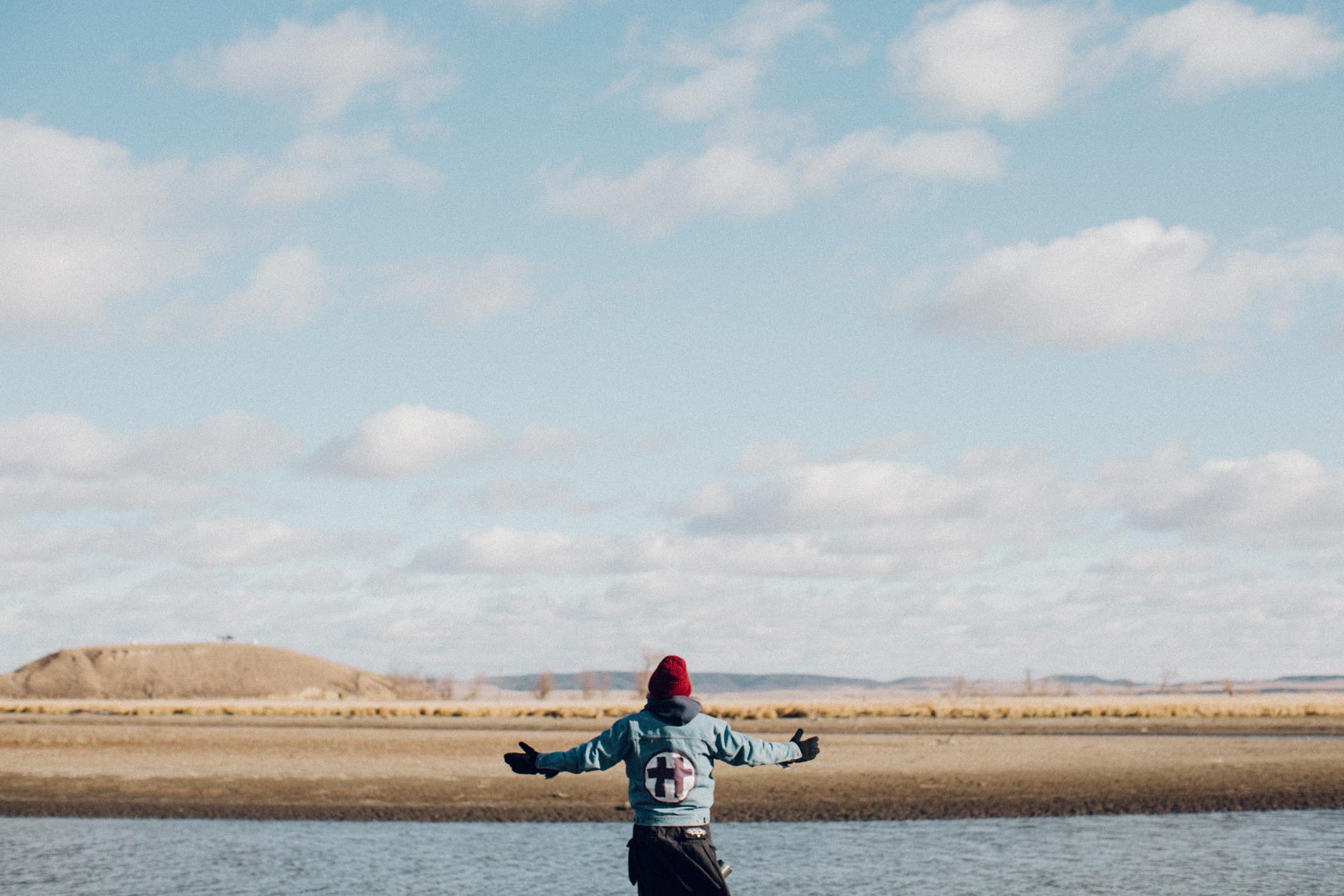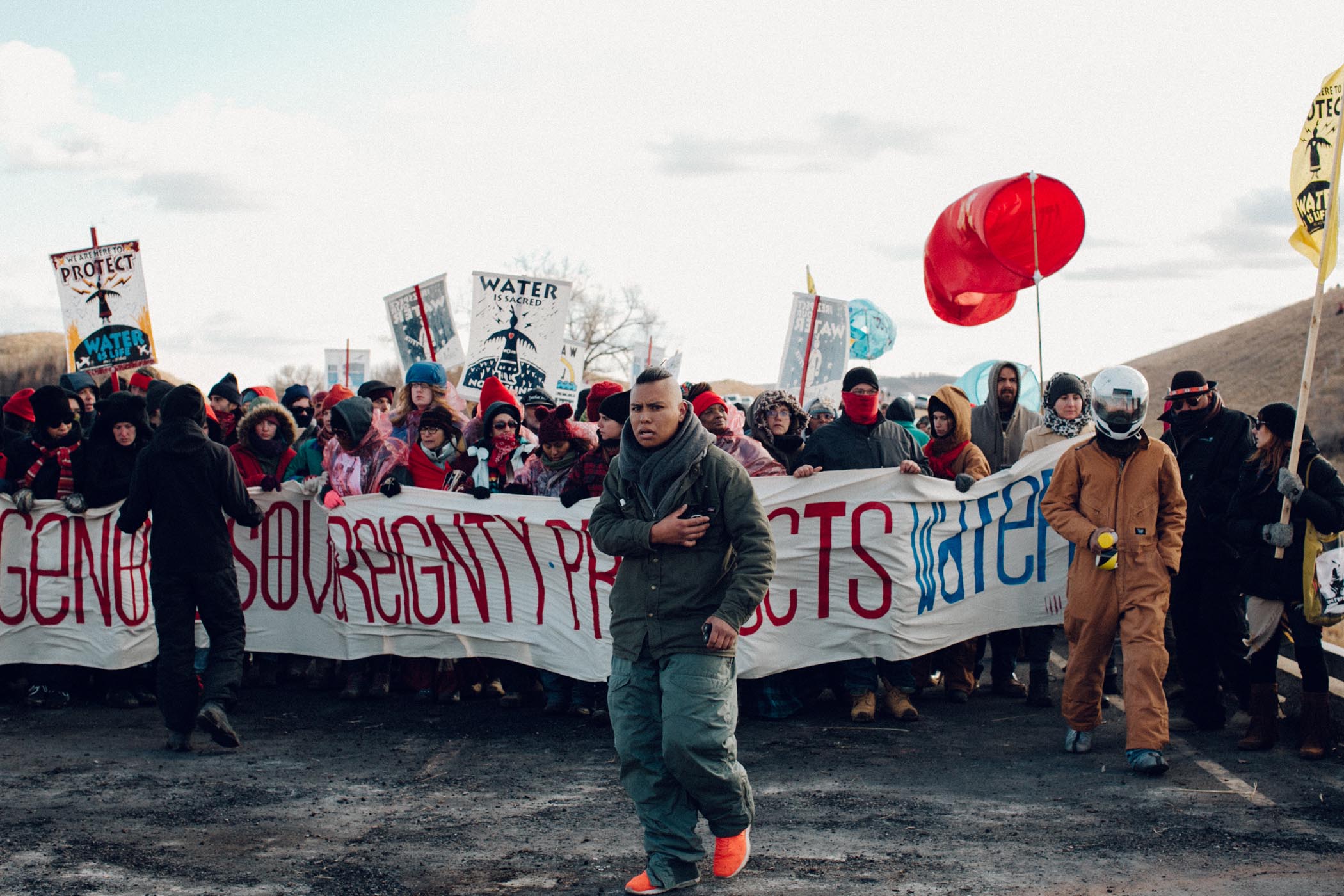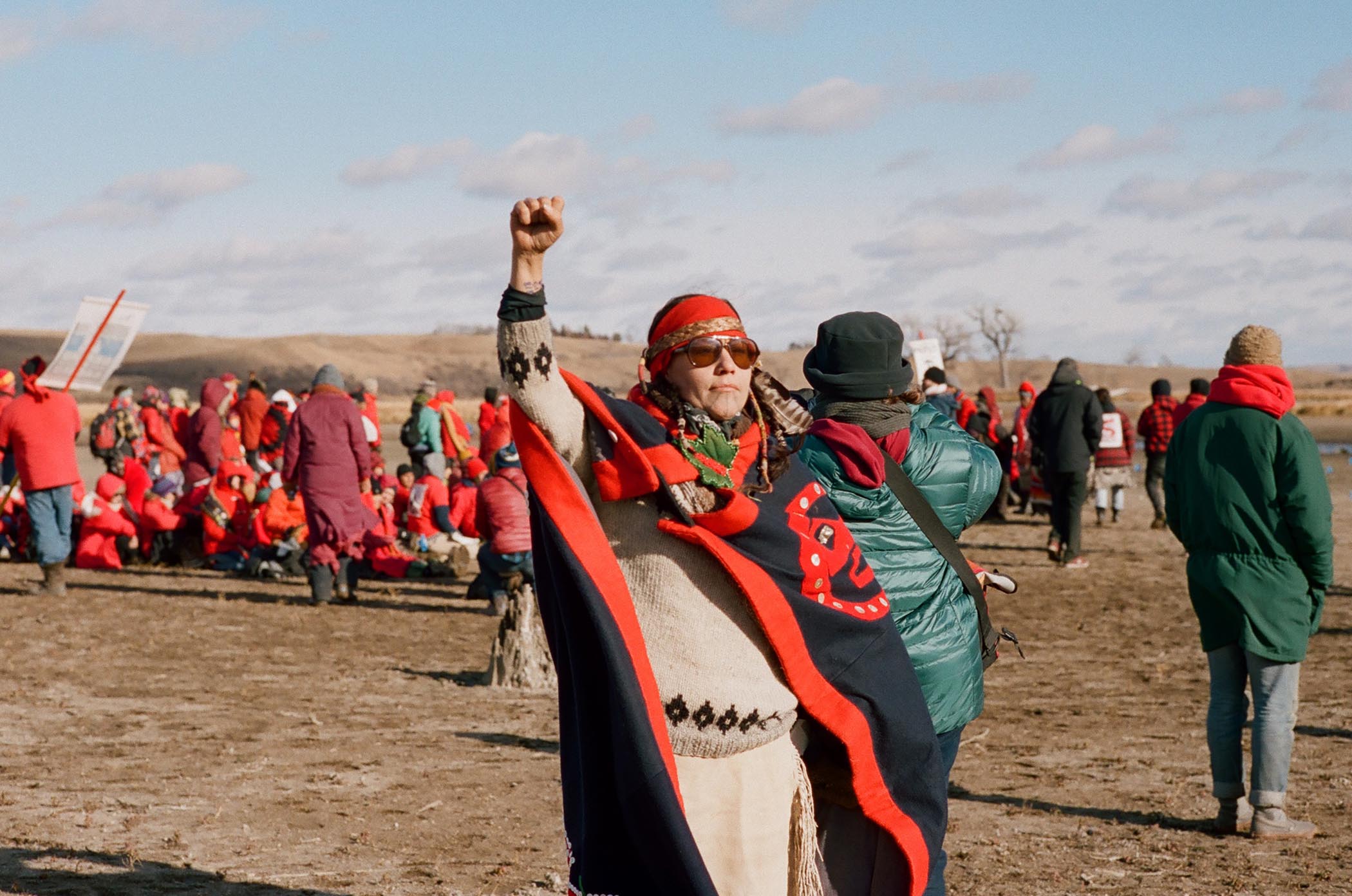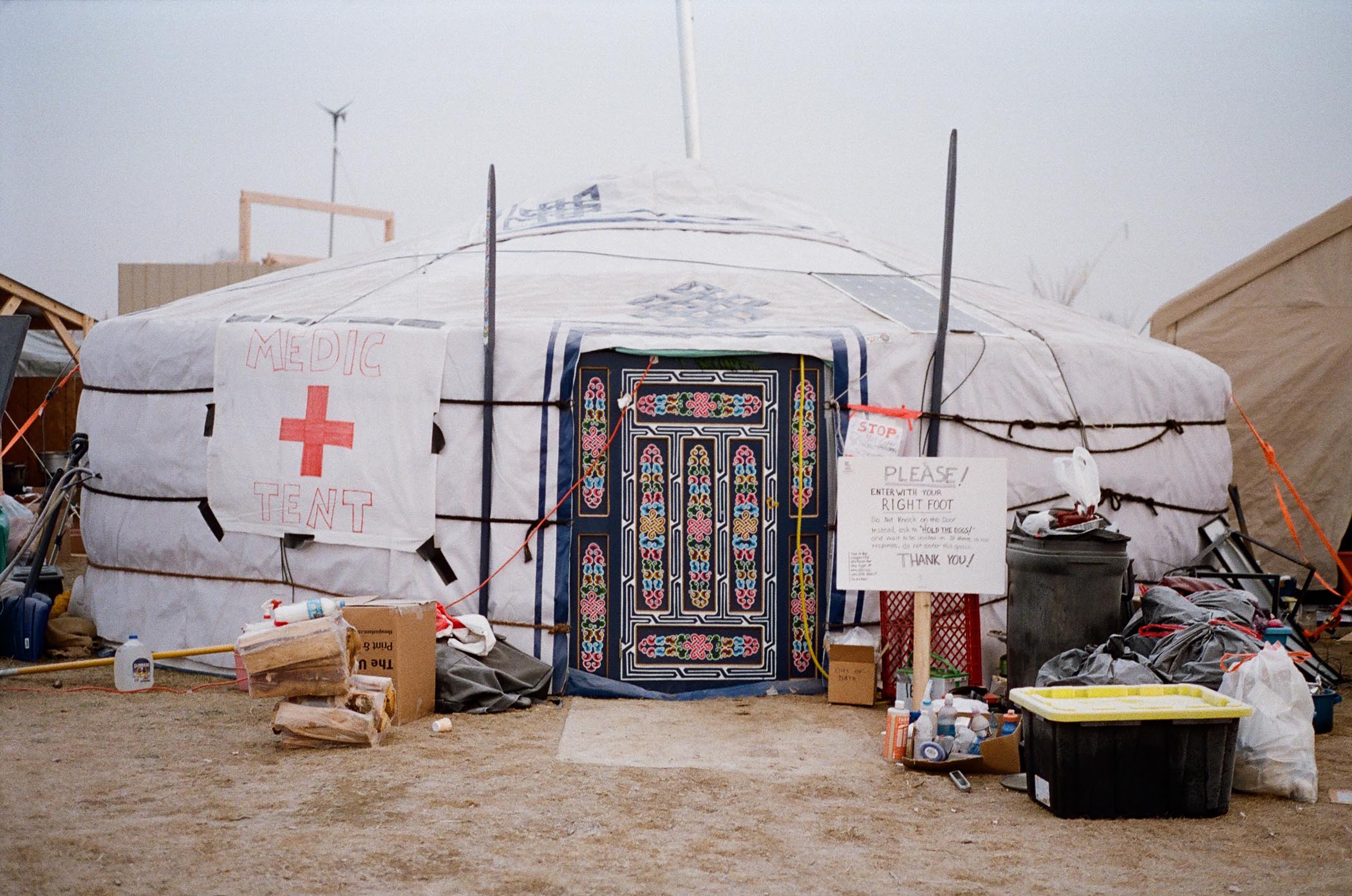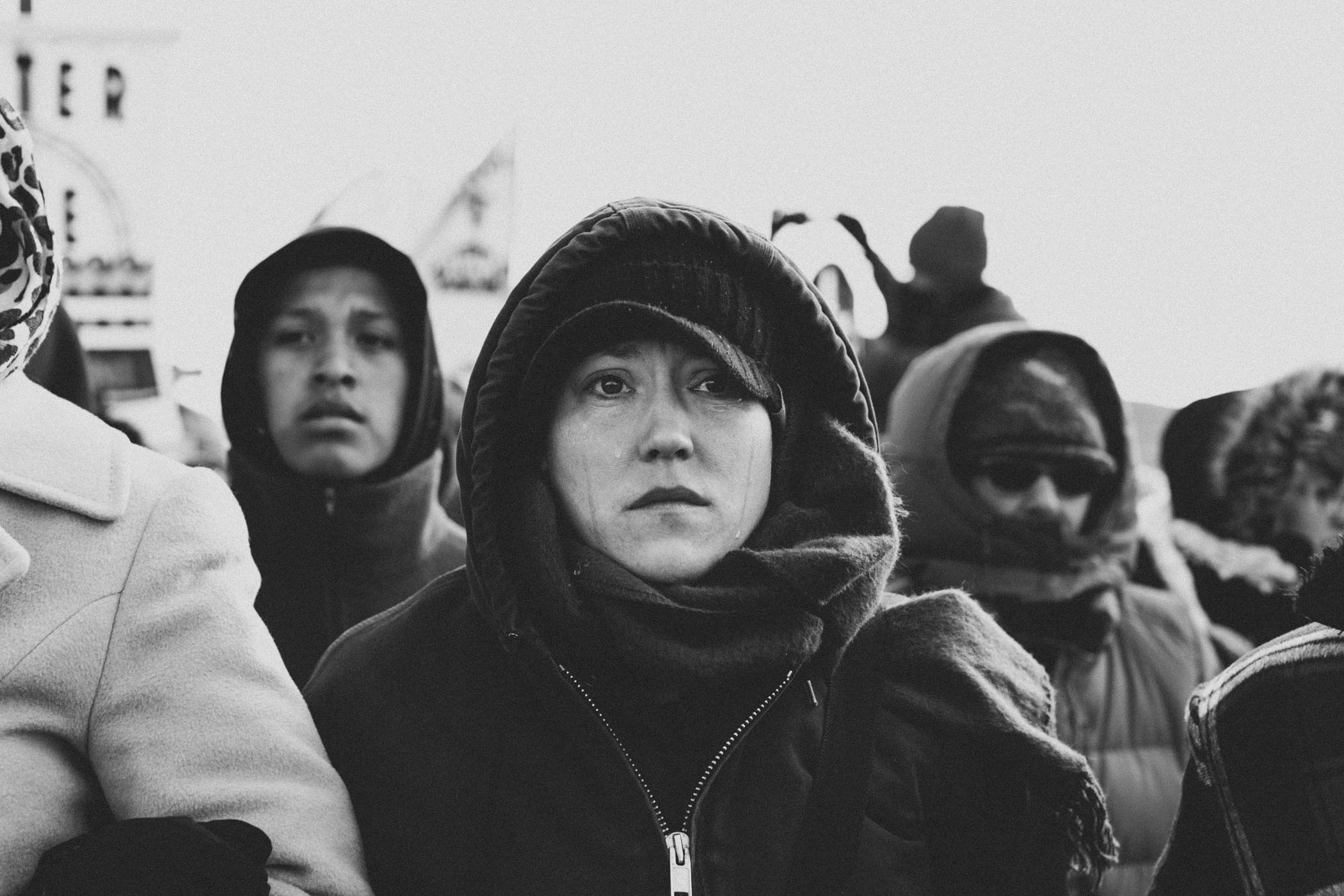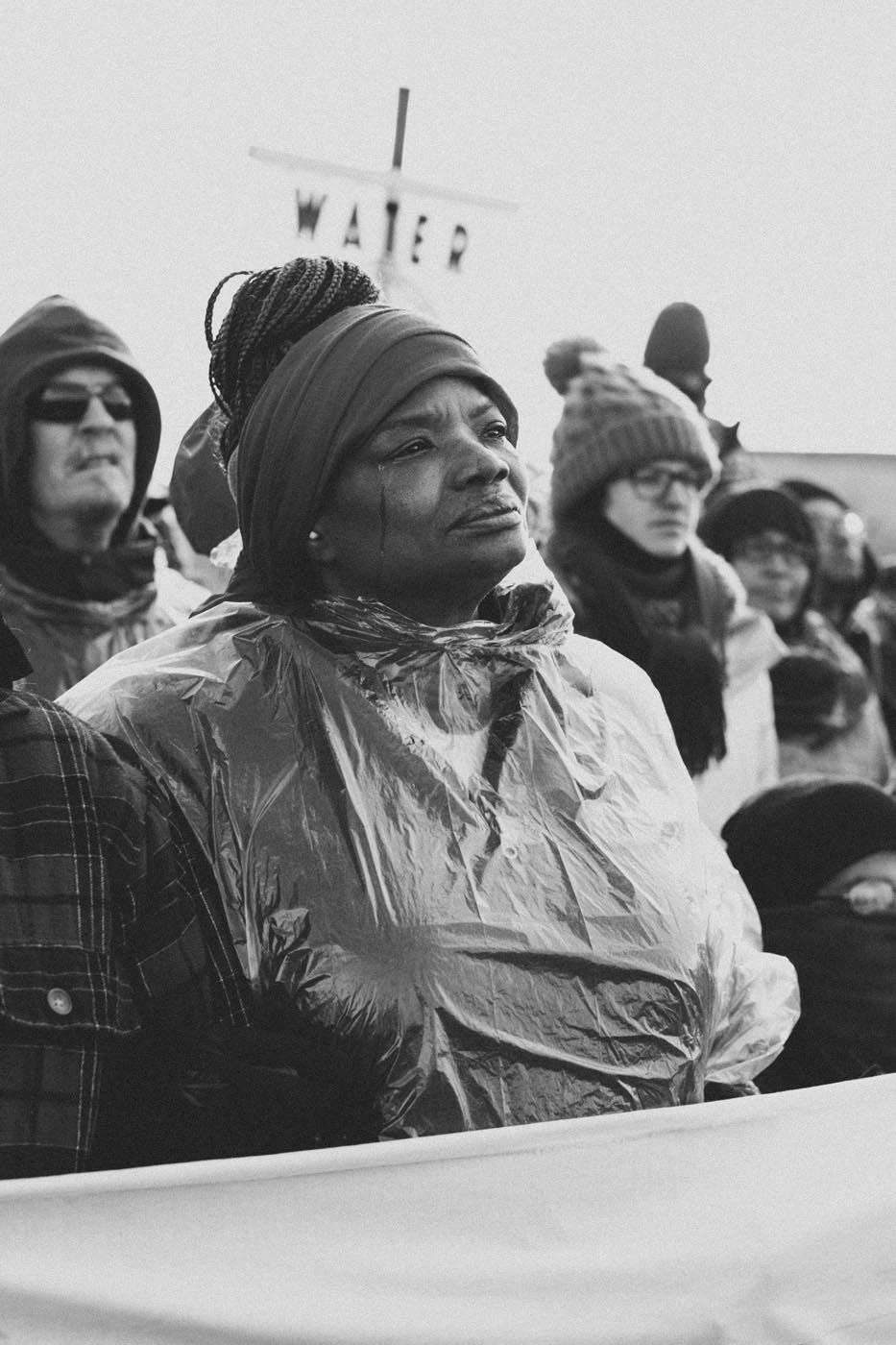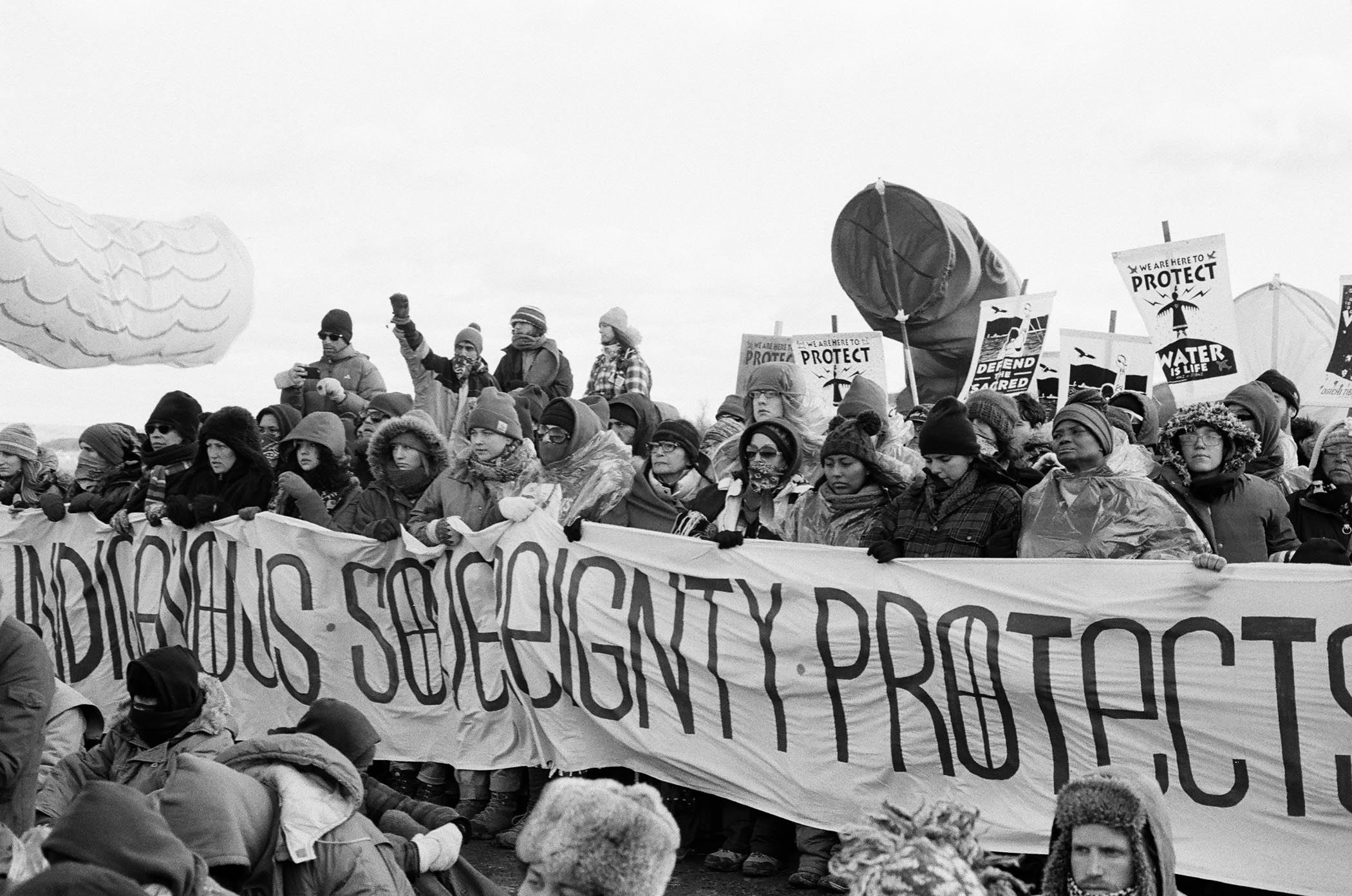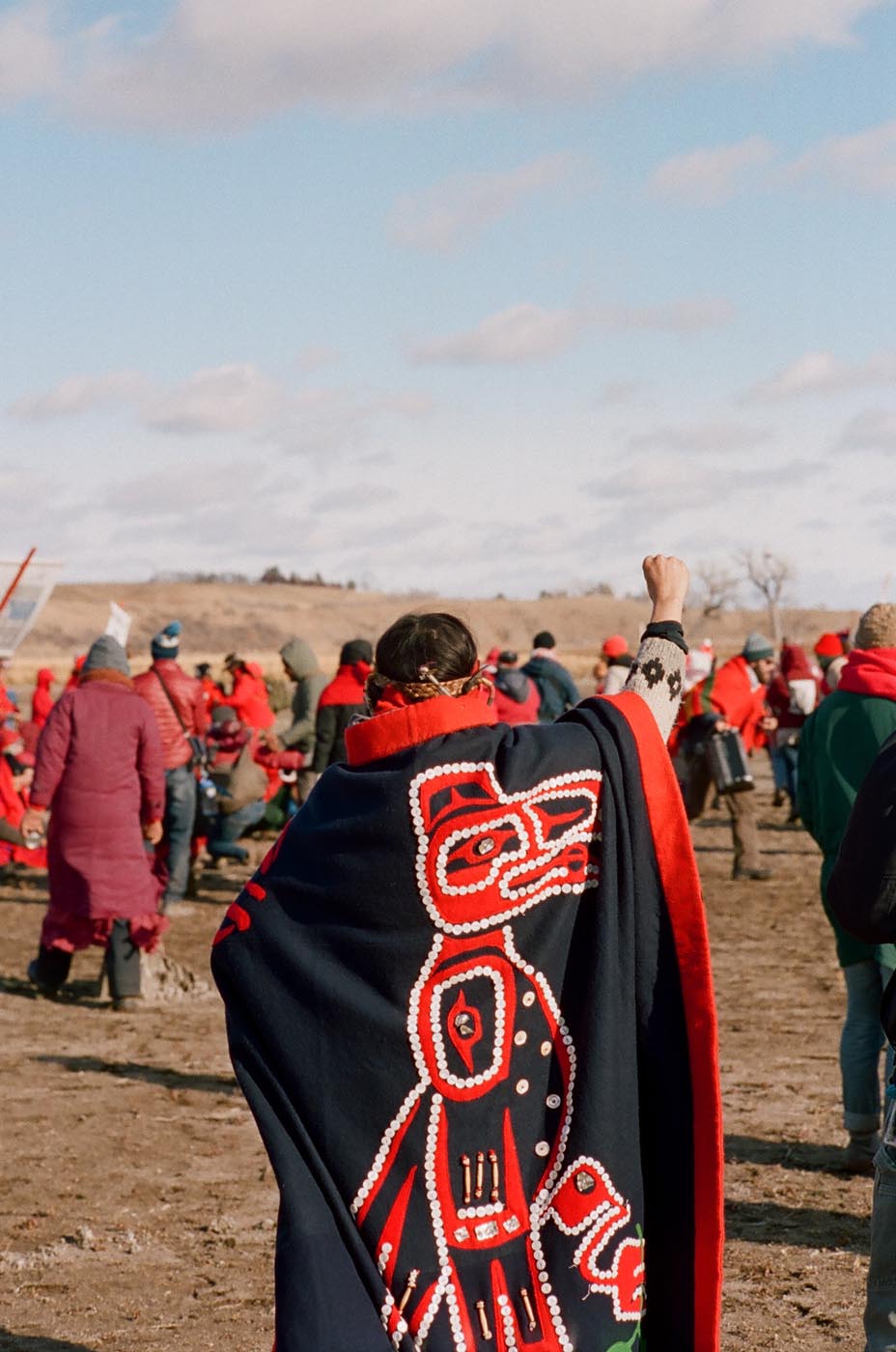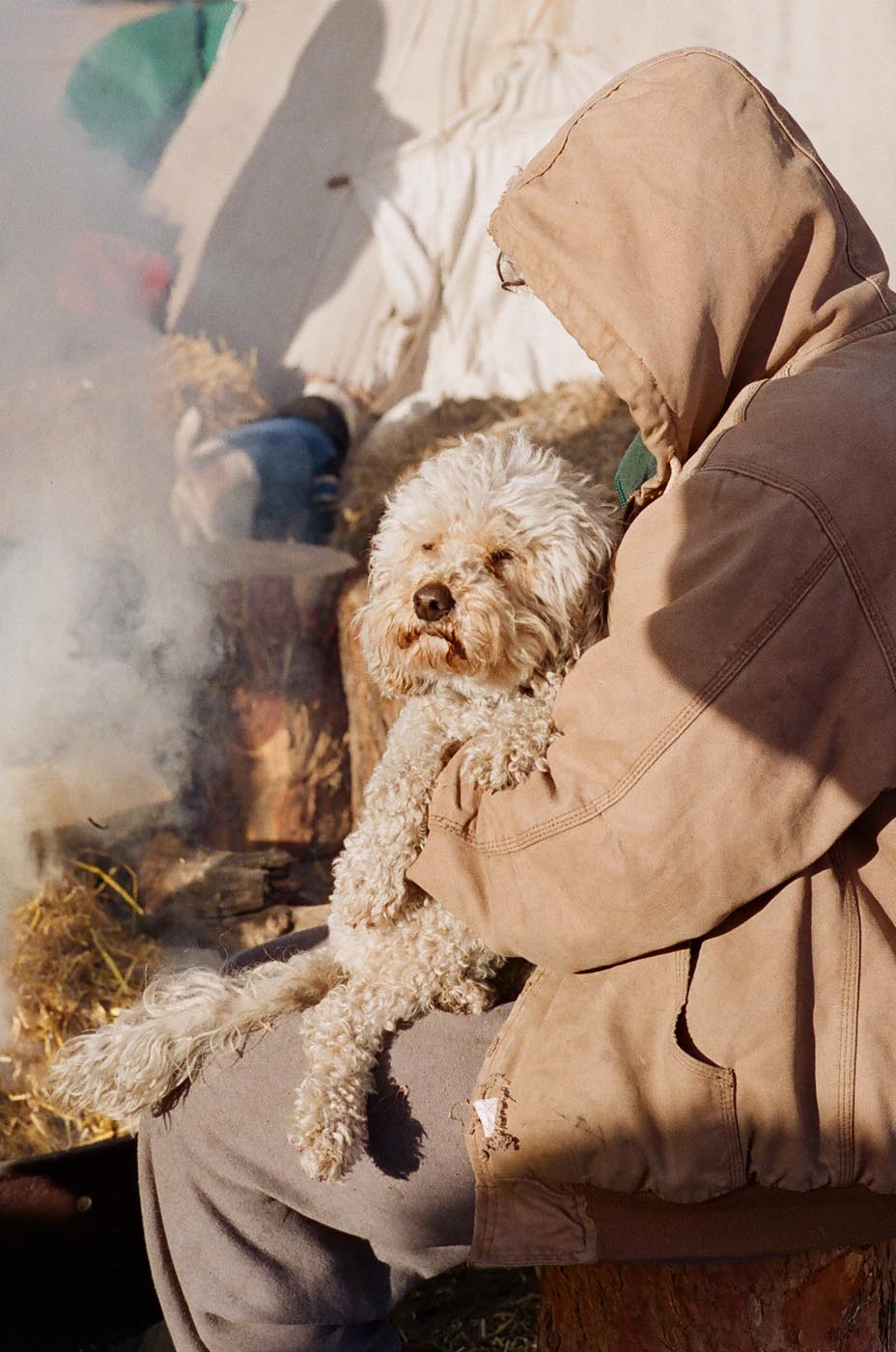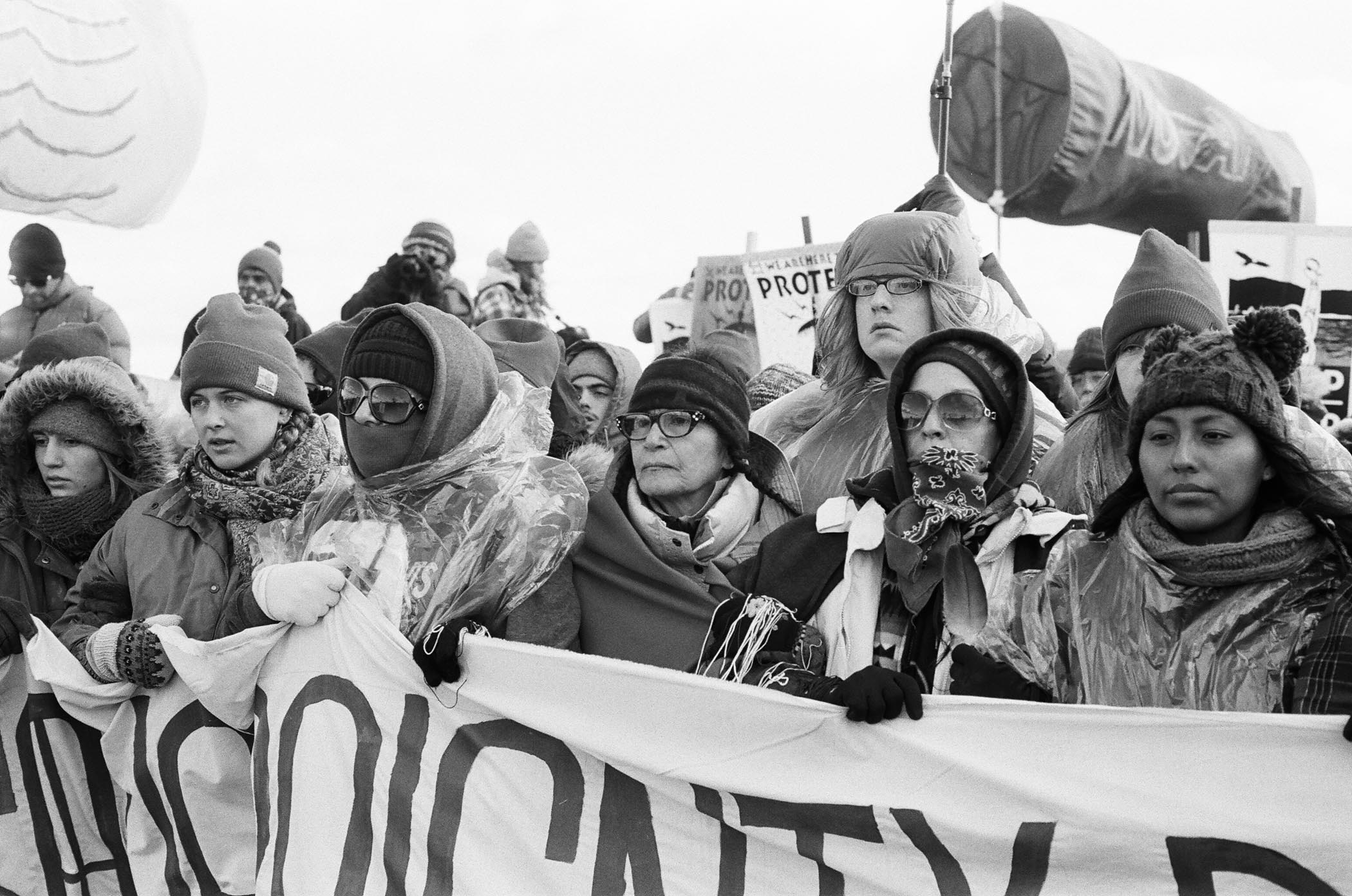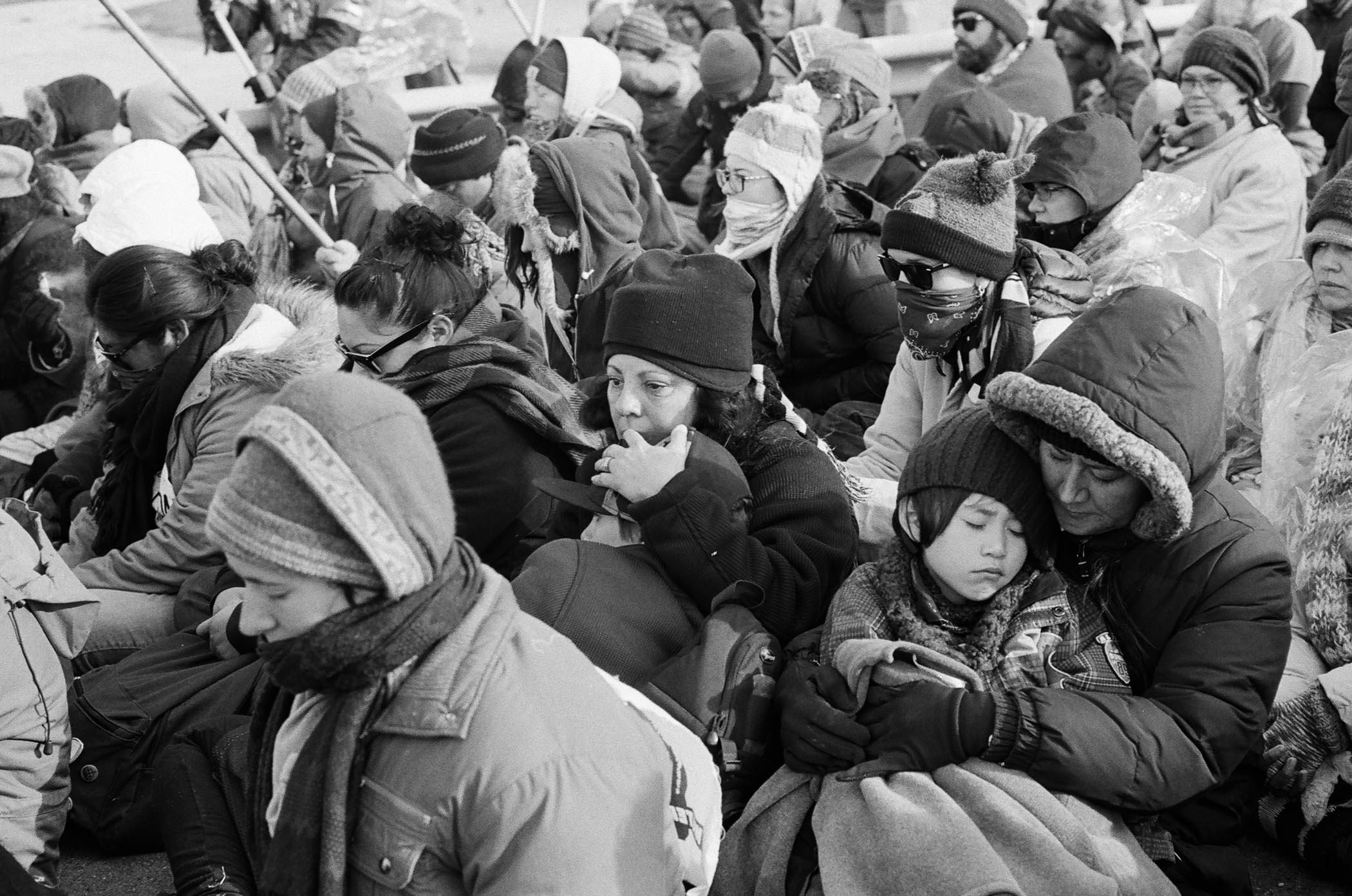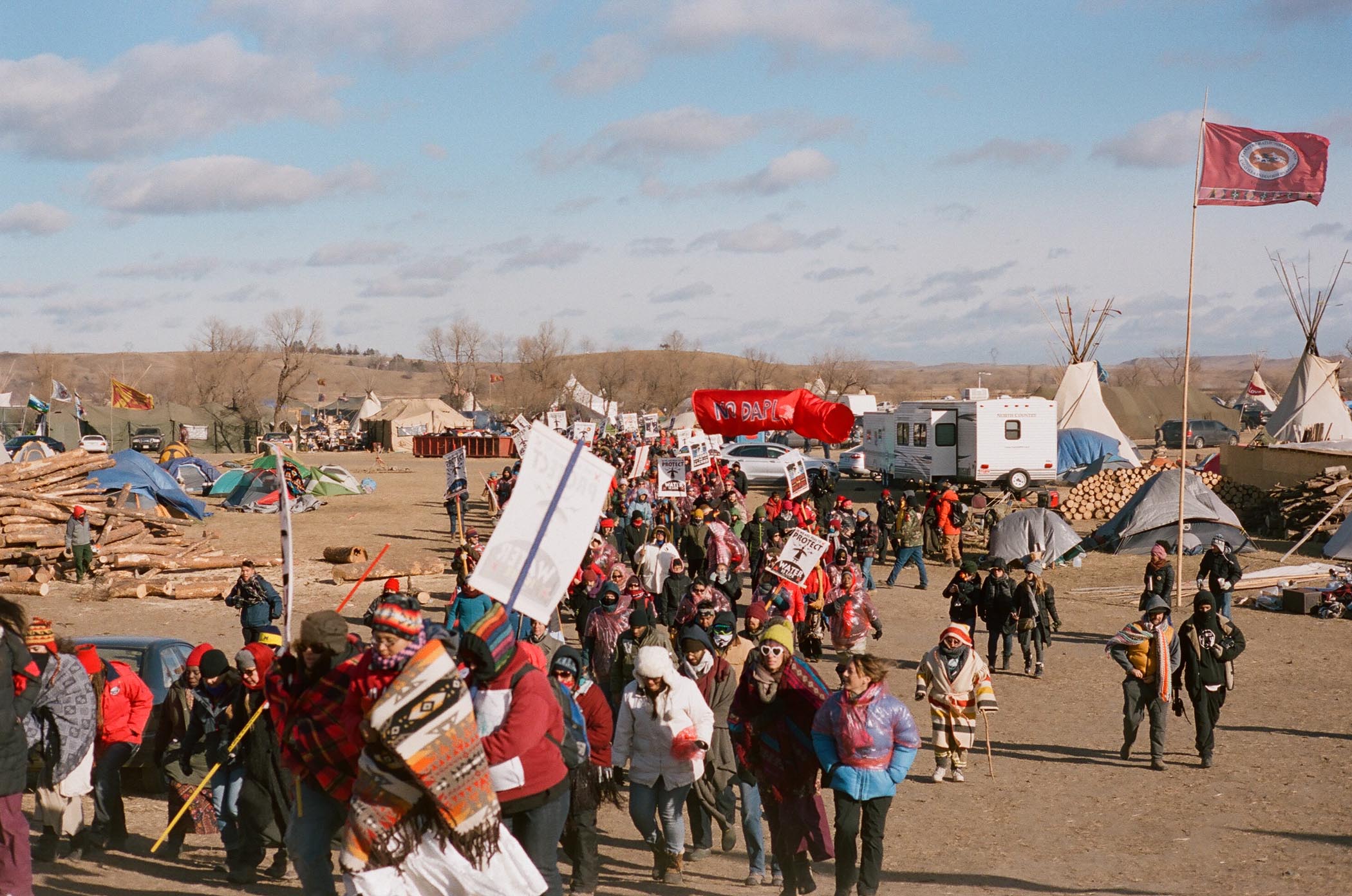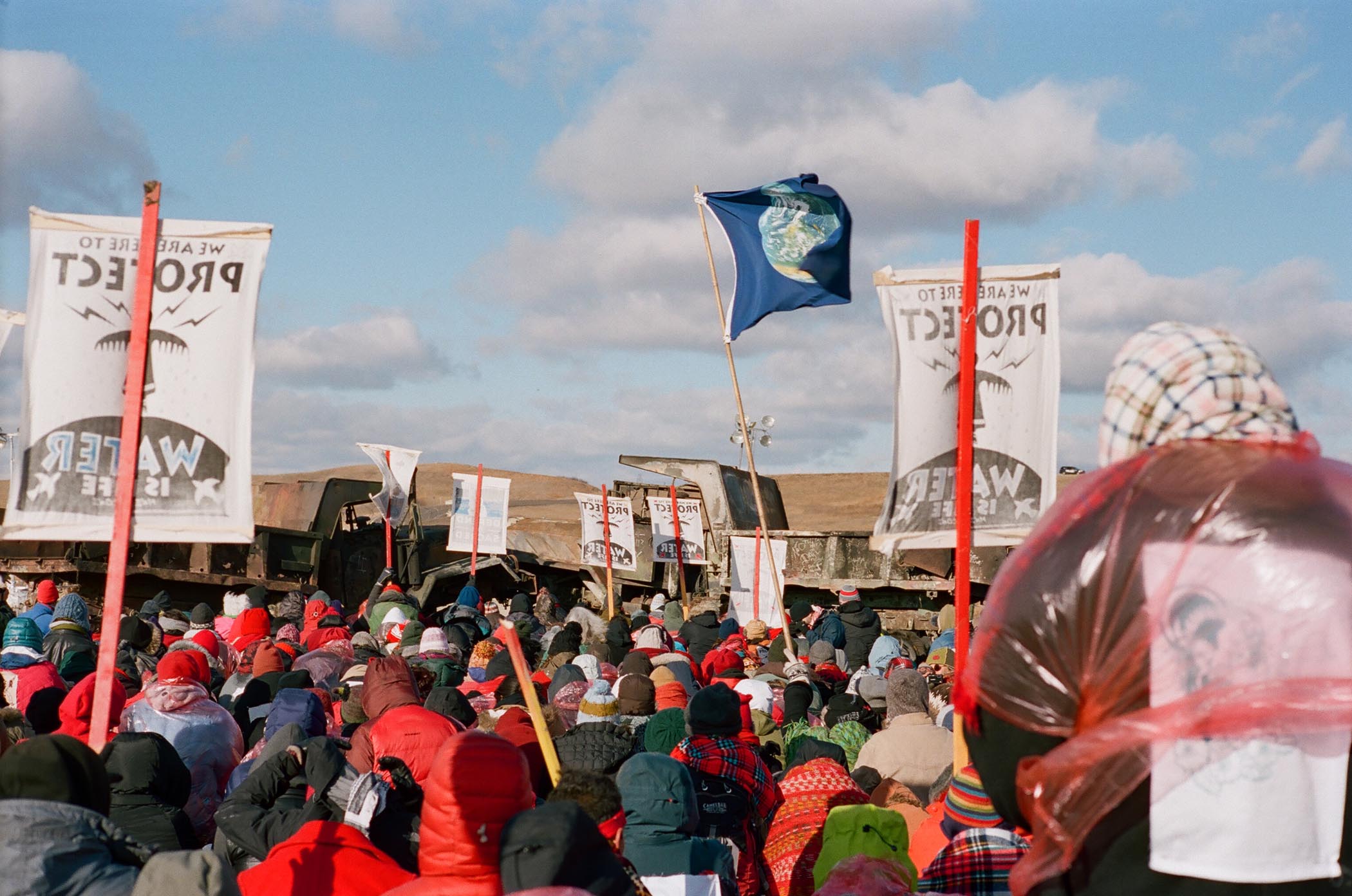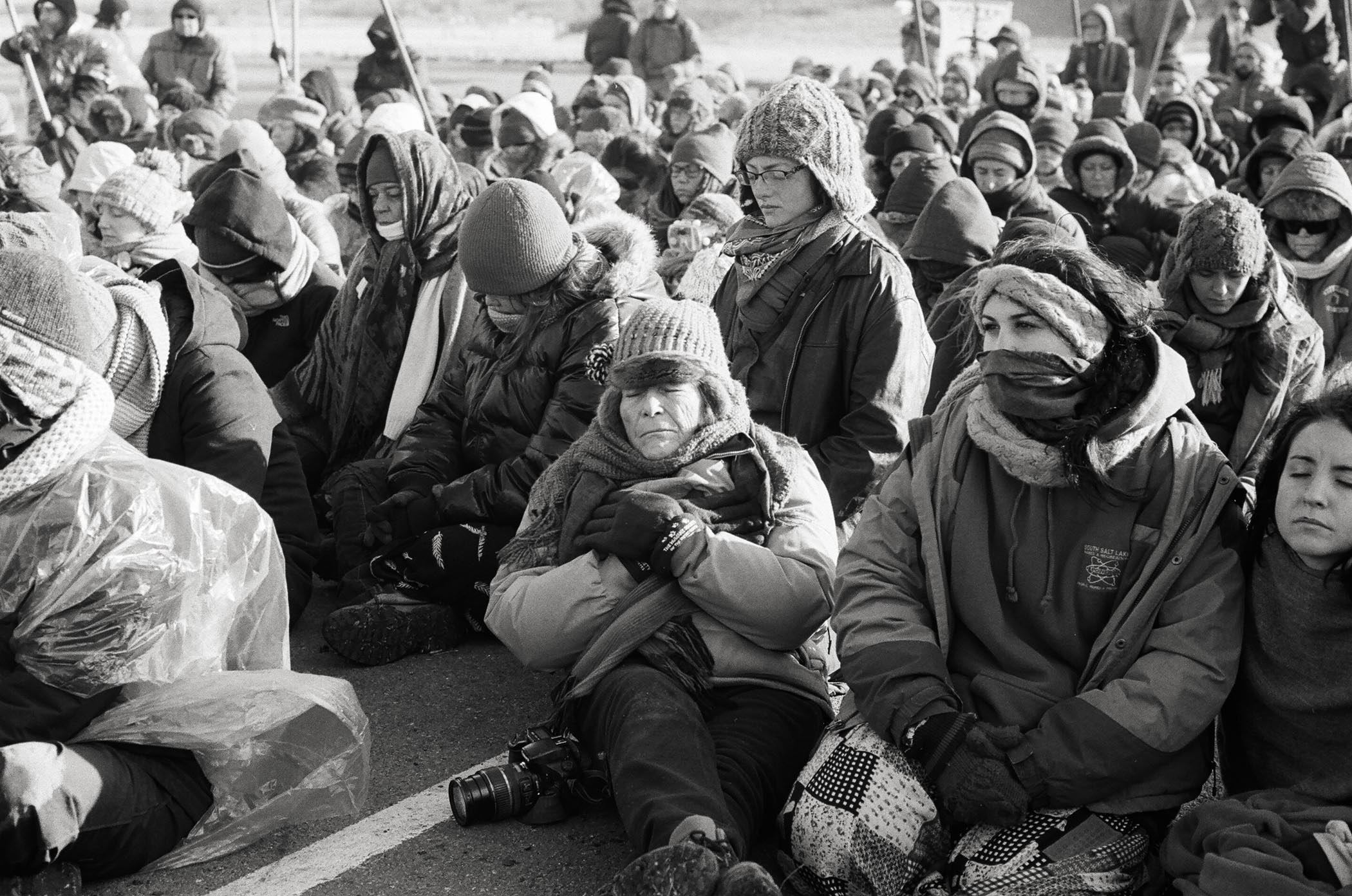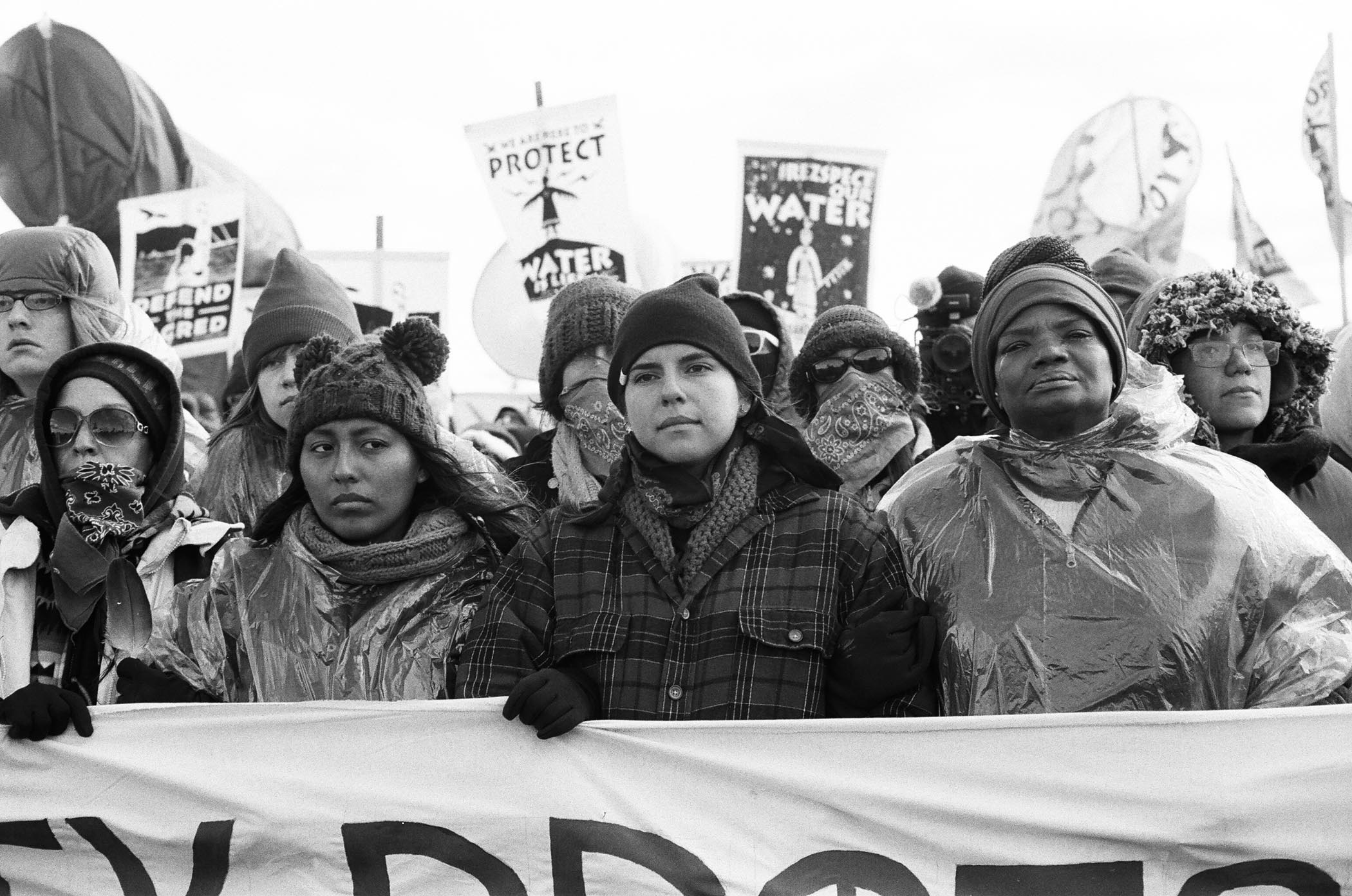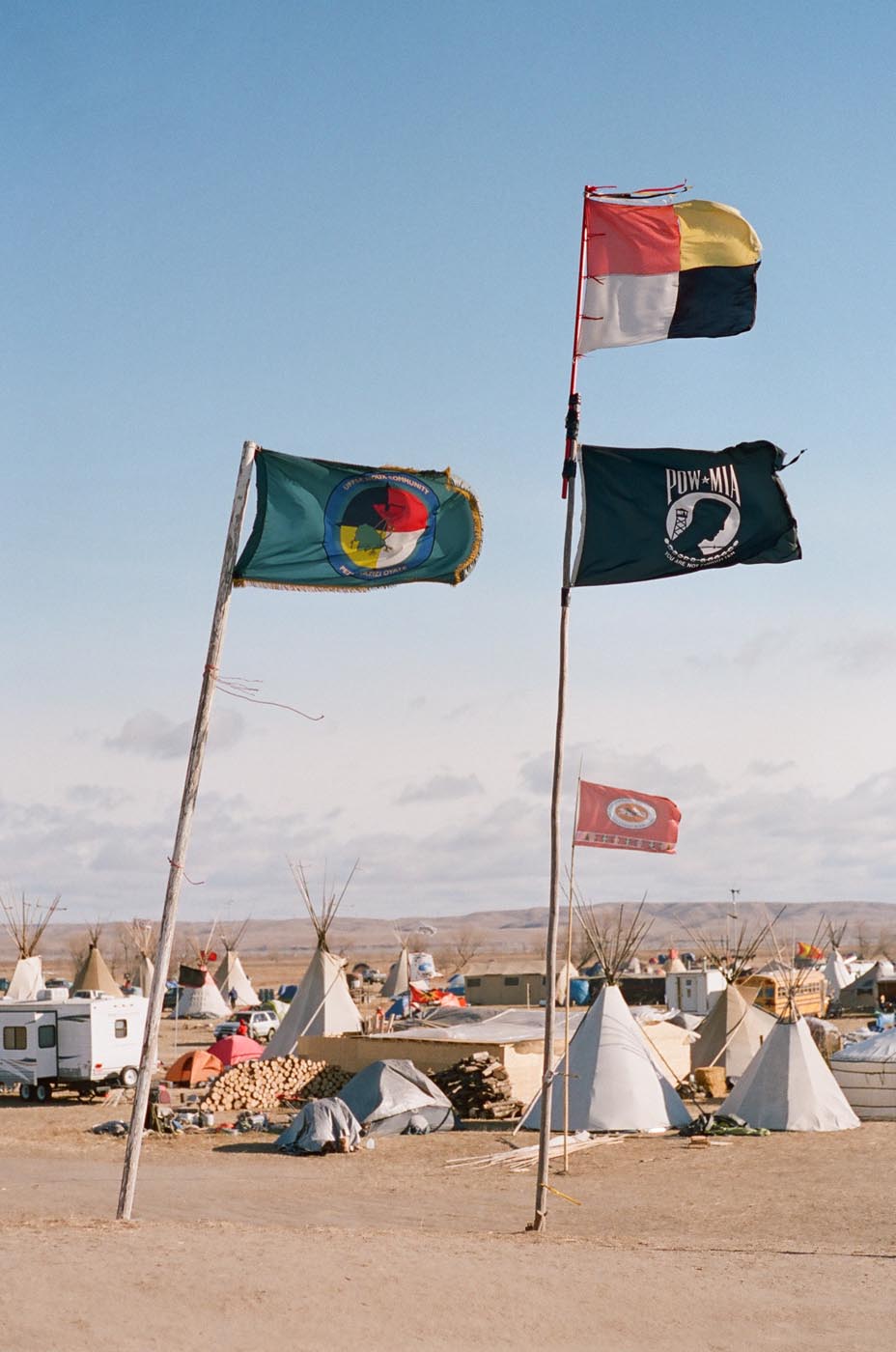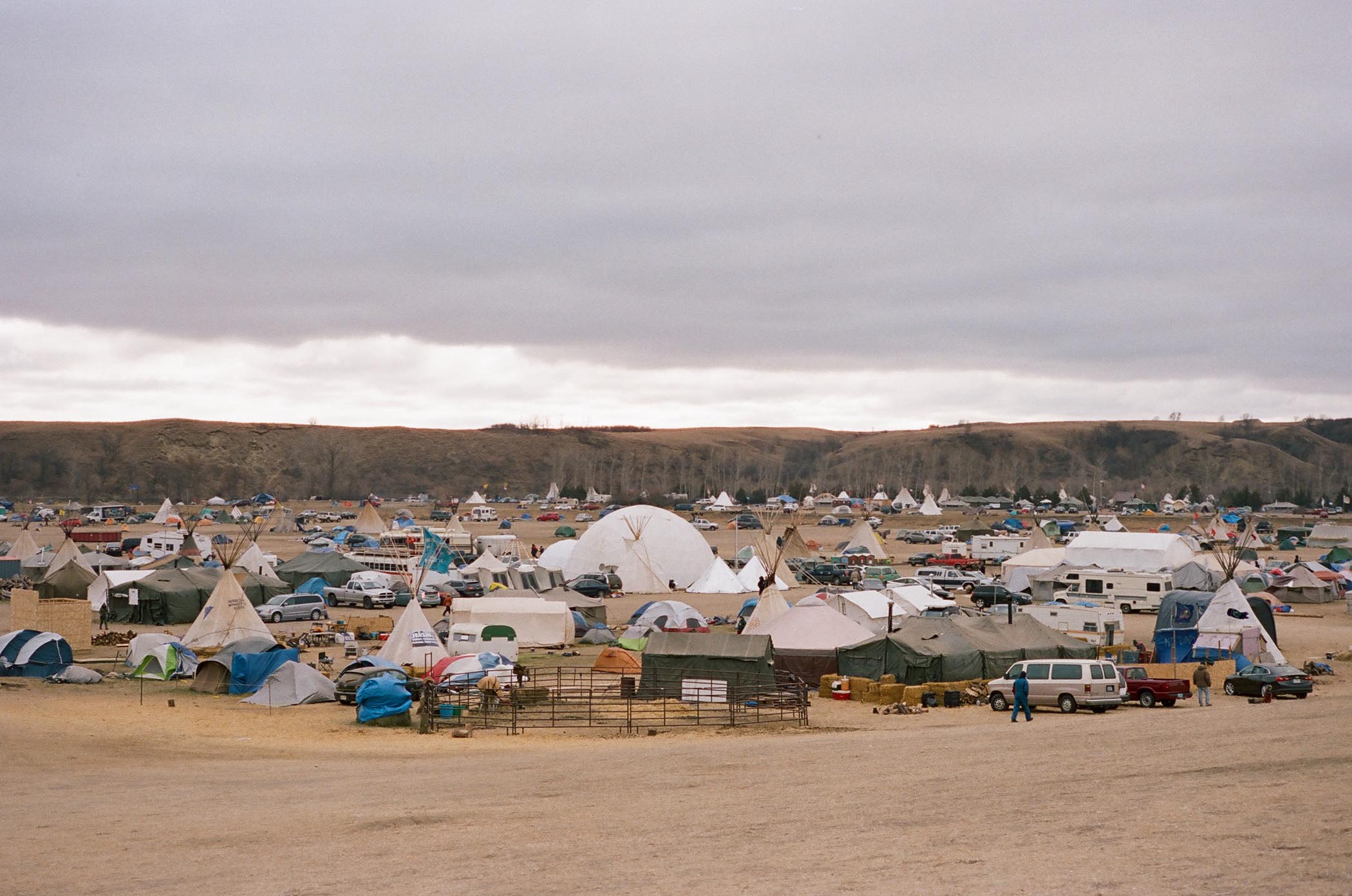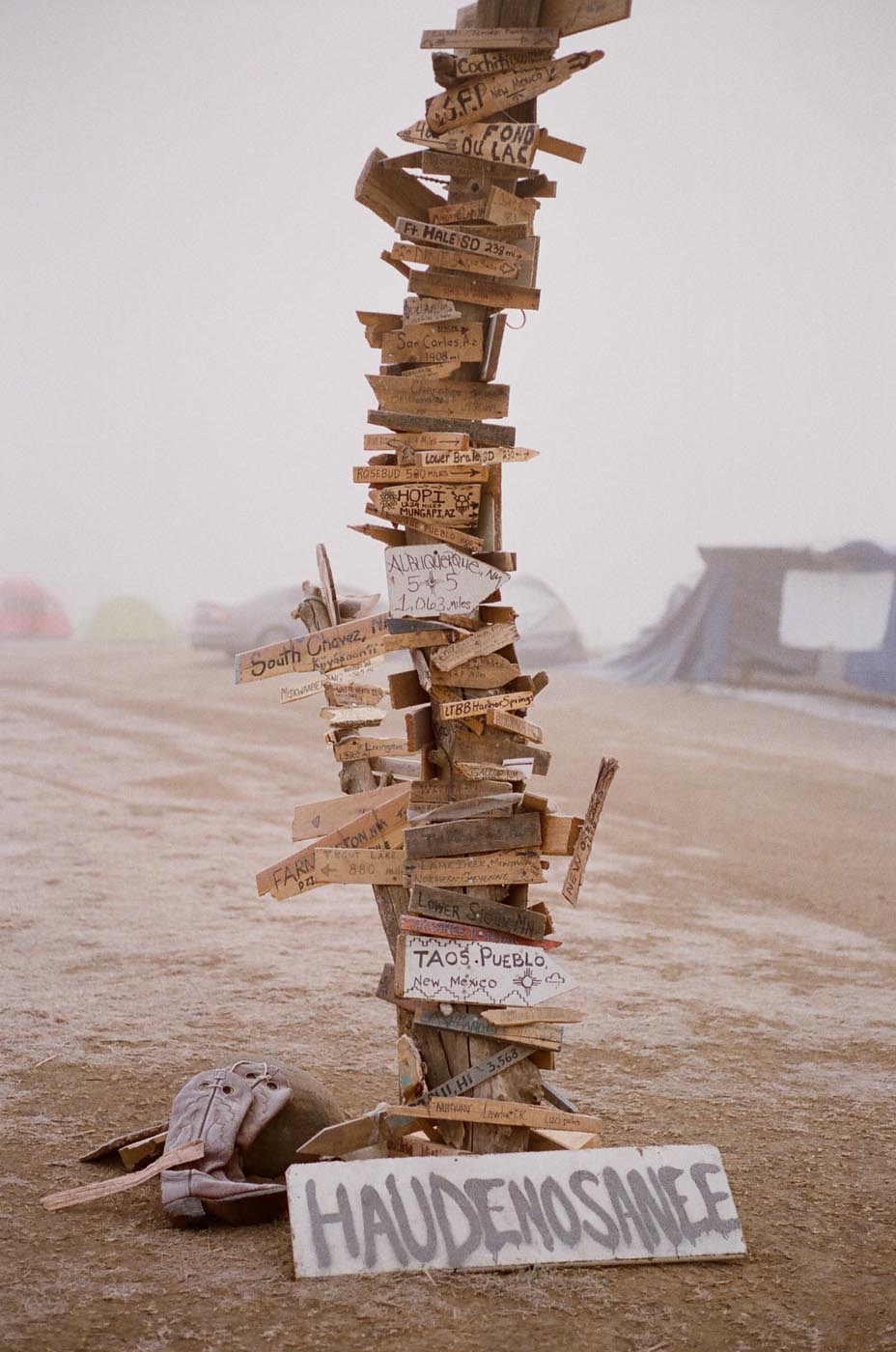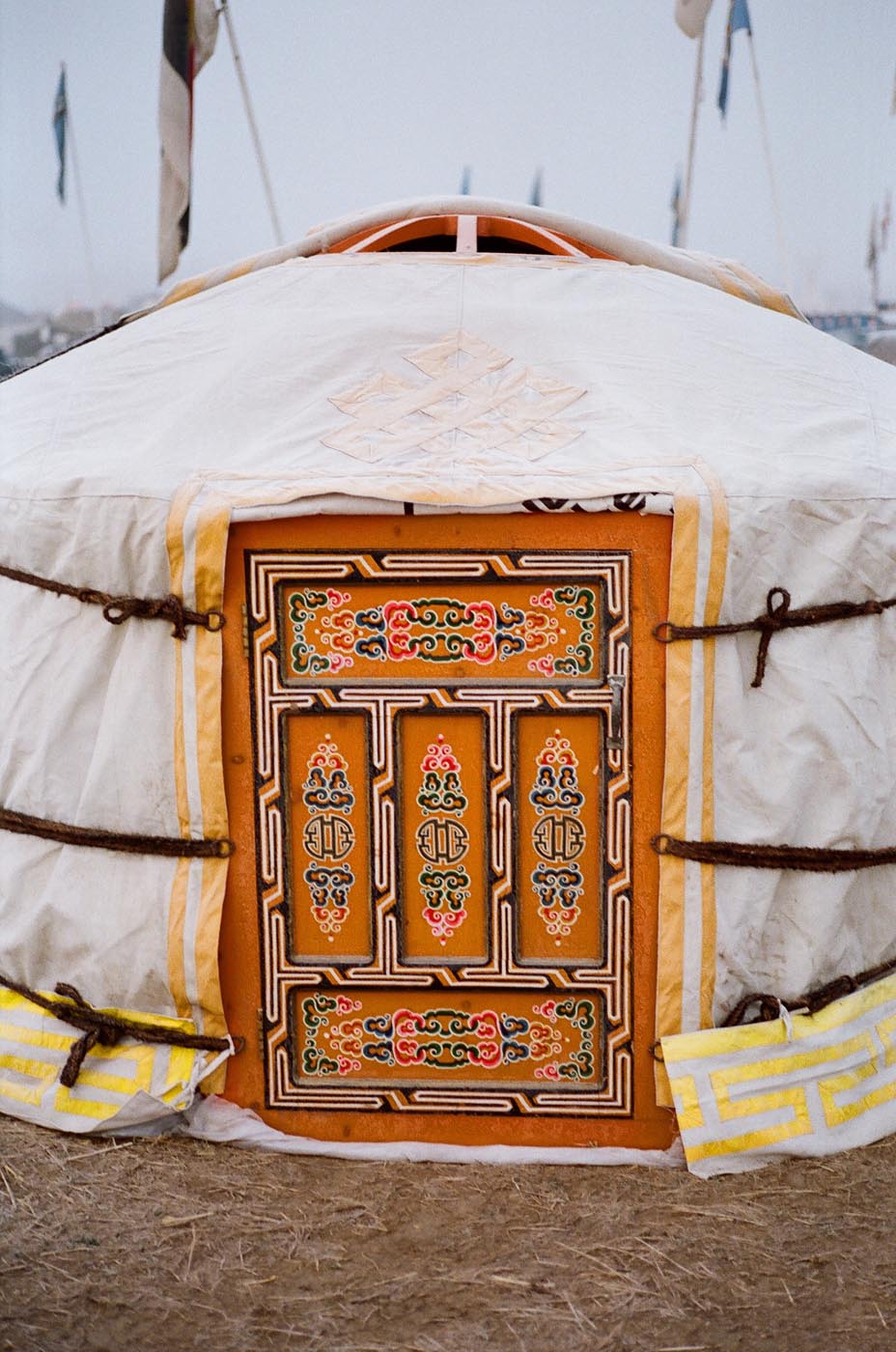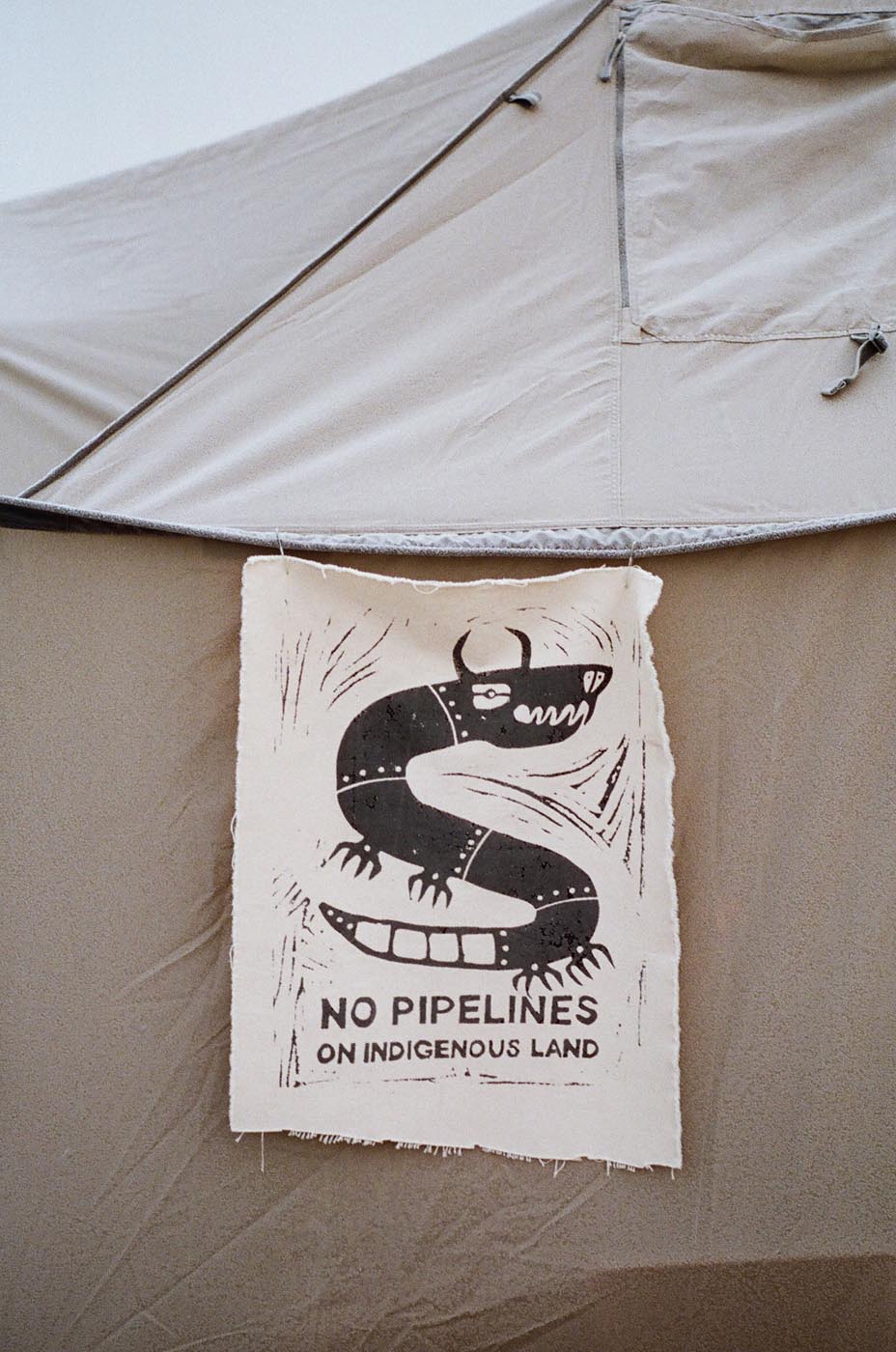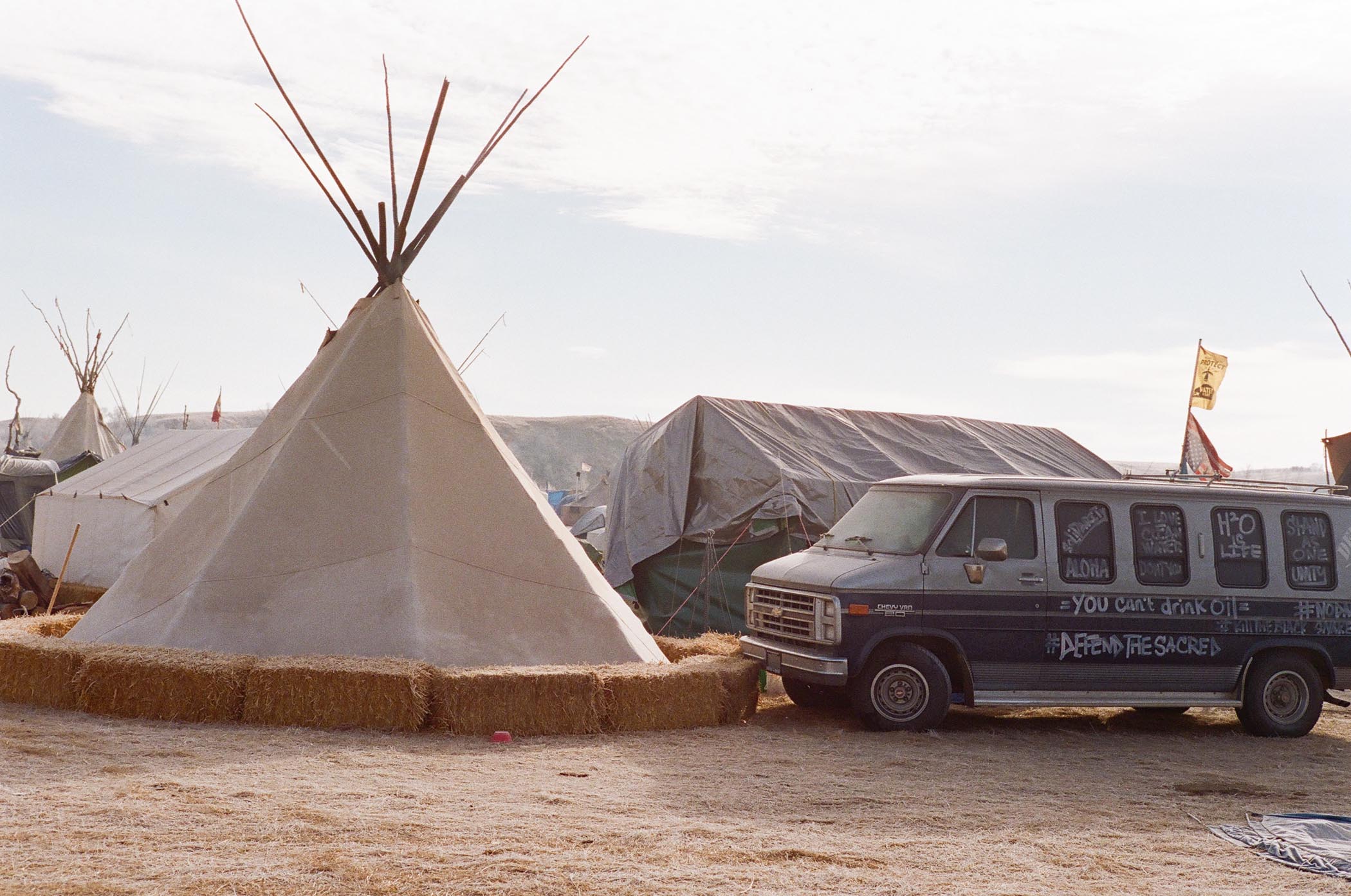After an arduous 28 hour drive, my cousin and I finally reached our destination: the windswept plains of Oceti Sakowin, the largest of the three prayer camps in protest of the Dakota Access Pipeline and home to the Standing Rock Sioux Tribe.
The next few days were cold, intense, and incredibly eye-opening. We attended an orientation where we were reminded of the hard-fast rules given by the elders: no drugs or alcohol in you or on you at any time. They also made it very clear that we, without exception, were to remain peaceful, even requesting that we refrain from cursing. The words “this is a peaceful prayer camp” were spoken many times.
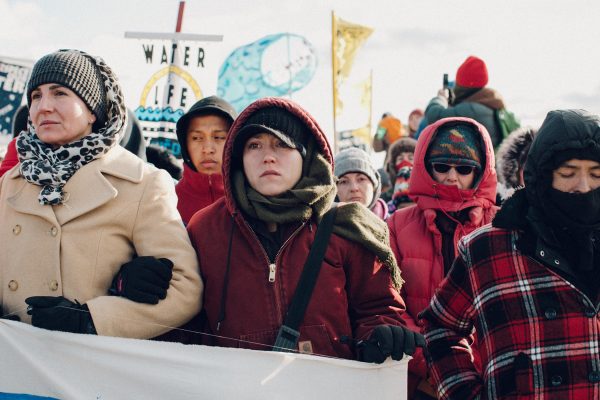
Photo: Kayla Ramirez
After orientation we checked into the legal tent. Here we had a meeting with an attorney who briefed us on what to do if we were arrested.He informed us that in the likelihood of being incarcerated, we may have the right to a phone call taken away, the almost certain likelihood of strip searches for females, felony charges being assigned to peaceful protesters and possible risk of injury. He warned that photographers were especially being targeted. Tales of cameras being taken and smashed by police and memory cards confiscated made us grip ours a little tighter.
Over the next few days we were immersed in life at camp, impressed by it’s fluid working order. The generosity was overwhelming. Strangers offered soup, sleeping bags, rides, and a space by the fire. People gathered in the mess hall, eating meals family style three times a day. We had stepped into this self sustaining community, a microcosm of creative minds, all contributing their skillsets and earnest hard work. But even with this almost idyllic sense of community, we couldn’t ignore the
surreal feeling of being in a war zone. Medics hurried about with bottles of milk of magnesia to soothe the burn of pepper spray. Posters on how to protect yourself from permanent eye damage when maced were strung up on tents. We were right to feel uneasy, as everyone quite literally, was being watched.
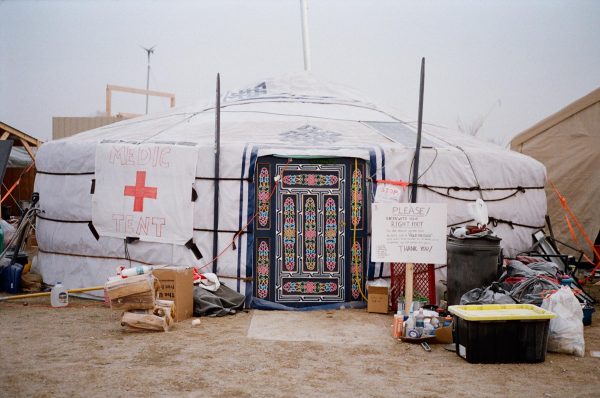
Photo: Laura Goldenberger
Tactics usually used in war times are currently imposed on camp and it’s occupants including a slew of questionable methods ranging from aircraft incessantly flying low throughout the night despite the area being a government issued no fly zone, to suspicions of microphones on phones being turned on and tapped using a device called an IMSI-catcher.
As we acclimated to this new environment we were ushered into a tent and as elders went over that day’s direct action. In other words- a protest. After the briefing, a group of women led a march to the police constructed barricade on the northern side of Backwater bridge. There they sat together in silent prayer. We began to mentally prepare for the possibilities that awaited, well aware that police brutality was a common occurrence at these seemingly harmless actions. Intimidating looking military vehicles began to stream down the highway towards the roadblock as police gathered, armed and equipped with riot gear.
This particular action fortunately ended without violence. Some of the water protectors were elderly, some had disabilities and others were children. Knowing so many of these people had been brutally assaulted, during similar actions, was difficult to fathom. Police brutality, in response to these peaceful protest, is troubling especially when protesters are told to never resist arrest.
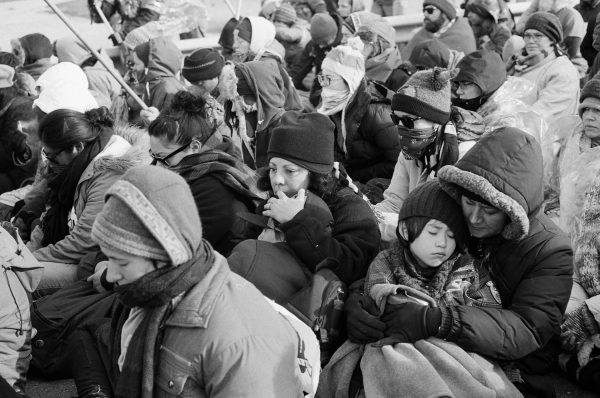
Photo: Laura Goldenberger
A few days before Thanksgiving, protesters who attempted to move the barricade to open up access North on highway 1806 (particularly for ambulances), were not so lucky. Hundreds of people were sprayed with water cannons in 23 degrees. People were shot with rubber bullets, maced and tear gassed. Many became hypothermic, an elder went into cardiac arrest and a young woman may lose her arm after being hit with a concussion grenade.
The Federal government, in charge of protecting our civil liberties, has chosen instead to protect a corporation breaking federal law. Who did the Morton County officers swear to “protect and serve”? Who will be accountable to these crimes against humanity? The Dakota Access Pipeline is a $3.8 billion dollar project with many investors including Bank of America, Chase, Wells Fargo and our President elect, Donald Trump. Our Federal government is once again choosing money over respecting the rights of Indigenous People.
Despite complaints from the Sioux filed in Federal court in July 2016, The Army Corps of Engineers granted approval of a permit which allows the oil company to construct a portion of the pipeline under the Missouri River just upstream of the reservation and the Standing Rock Sioux Tribe’s drinking water supply. This construction has already desecrated culturally important and sacred burial grounds on the tribe’s ancestral land (imagine a pipeline plowing through the Arlington cemetery), landing only a half mile away from the reservation’s border. An oil spill would pose an existential threat to not only the Tribe but to the 8 million people living downstream as well.
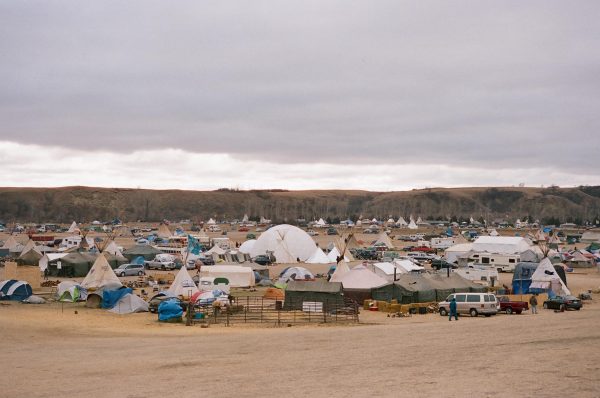
Photo: Laura Goldenberger
Originally the pipeline was proposed to slice through Bismark, but was quickly denied due to concerns over the potential threat to the municipal water supply. Energy Transfer Partners (ETP) chose to listen to the concerns of a predominantly white town (90%) and redirect the pipeline.
As we all know, the exploitation of Indigenous People is not a new concept. For hundreds of years colonization has inflicted atrocities ranging from genocide to kidnapping upon natives already struggling to survive.
Treaties were notoriously made and broken, and in cases like the Dawes Act in 1889, reservation sizes were greatly reduced in this instance without the consultation of a single Sioux Tribal member.
Right now, people are struggling to finish winterizing camp. Staying for the winter will not be easy, and with our change of government leaders, it is hard to remain hopeful that the pipeline will be halted. One thing is certain, we must stand together to protect + ensure that the civil rights upon which this country was founded on are upheld for all. If we do not, history is sure to repeat itself.
For those seeking more information, visit the Oceti Sakowin website. Those interested in donating to the cause can visit the Medic Healer Council website and the Sacred Stone Legal Defense Fund.

